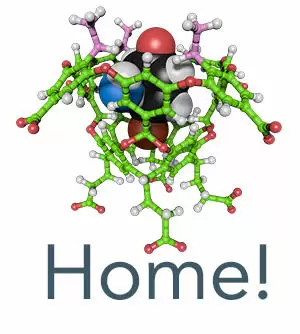Abstract
Guests covering a range of polarities were examined for their ability to bind to a water-soluble cavitand and trigger its assembly into a supramolecular capsule. Specifically the guests examined were: tridecane 2, 1-dodecanol 3, 2-nonyloxy ethanol (ethylene glycol monononyl ether) 4, 2-(2-hexyloxyethoxy) ethanol (Di(ethylene glycol) hexyl ether) 5, 2-[2-(2 propoxyethoxy)ethoxy] ethanol (Tri(ethylene glycol) propyl ether 6, and bis [2-(2-hydroxyethoxy)ethyl] ether (tetra(ethylene glycol)) 7. In this series, guest 6 proved to signify the boundary between assembly and the formation of 2:1 complexes, and simple 1:1 complexation. Thus, guests 2-5 formed relatively kinetically stable capsules, guest 6 formed a capsule that was unstable relative to the NMR timescale, and guest 7 formed a simple 1:1 complex.

